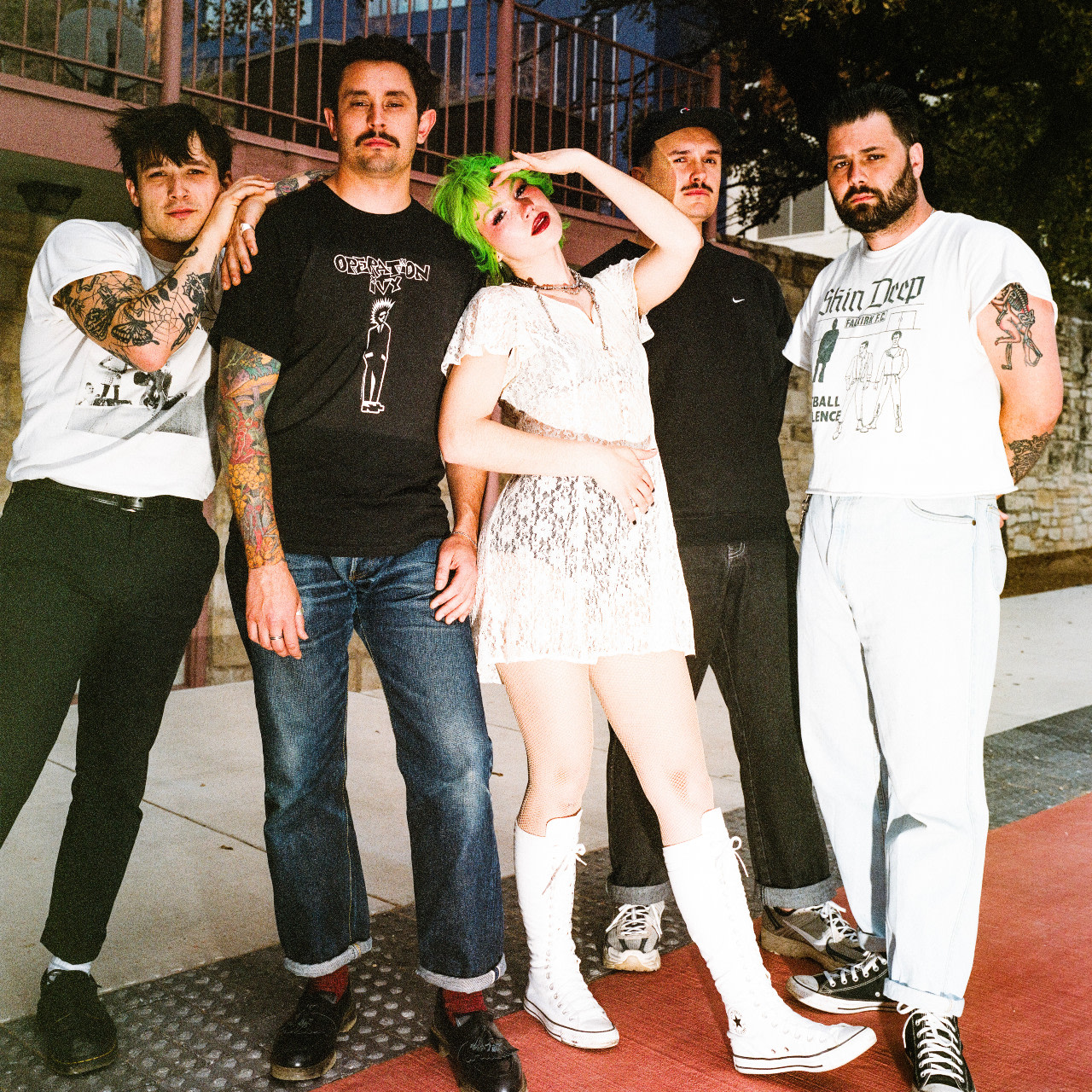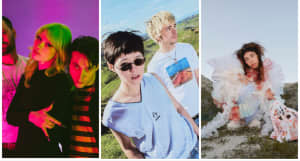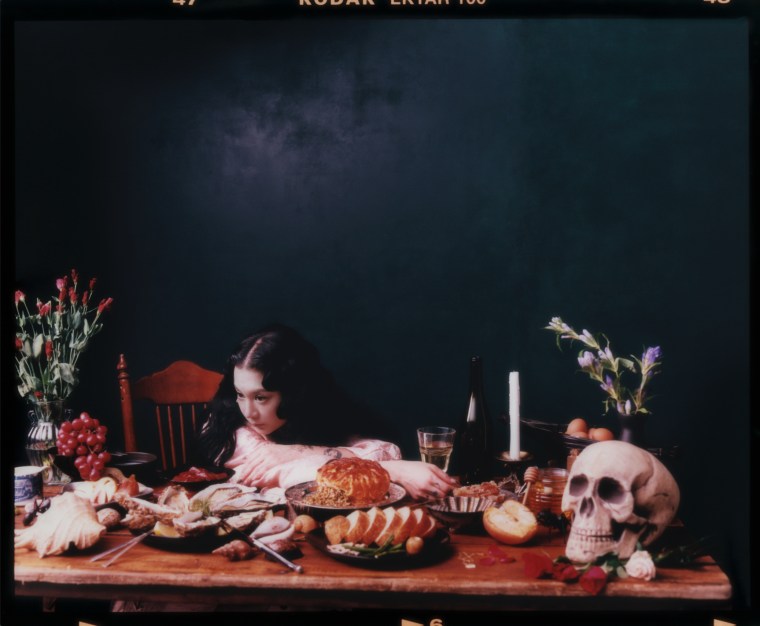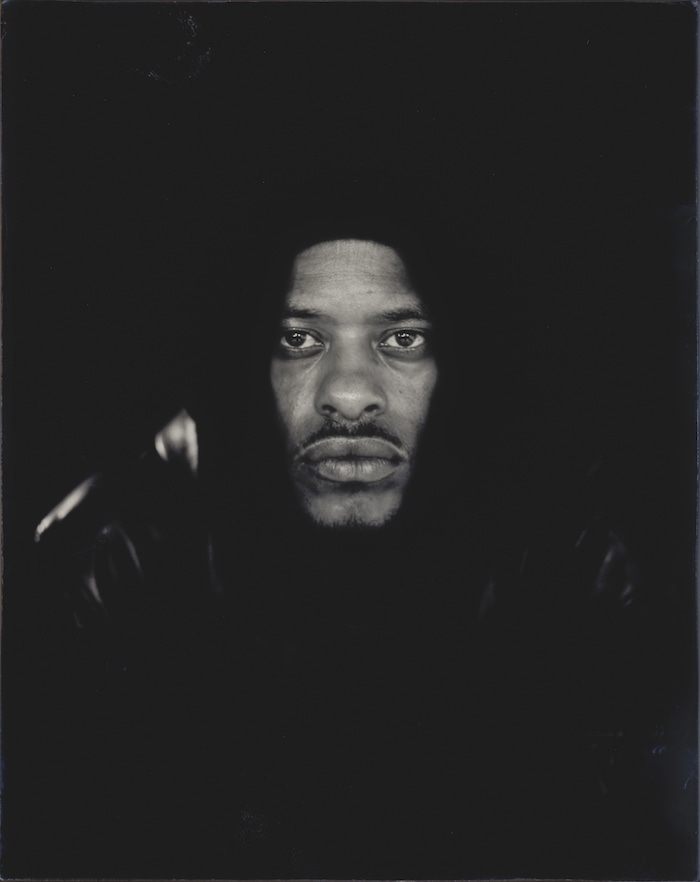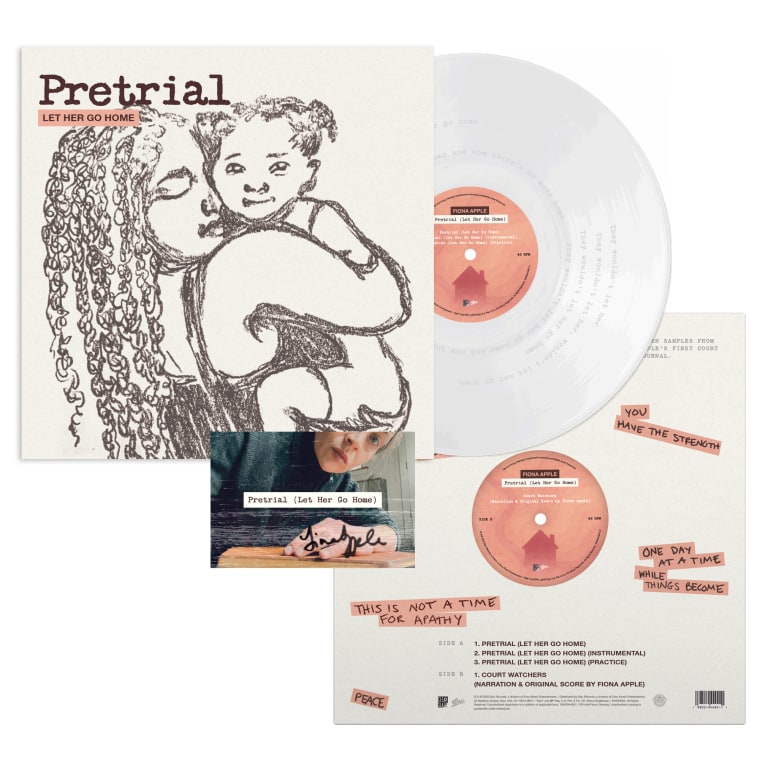Are We All Angels and redefining hardcore”>
Pooneh Ghana
Scowl are gathered backstage at The Fillmore in Charlotte, North Carolina, the latest in a dizzying array of shows that have propelled the band from performances at unlikely venues like a Sonic Drive-In to 2000-cap rooms.
Kat Moss, the frontwoman for the Bay Area hardcore band, stands out from her bandmates with her shock of neon green hair. She is joined by the rest of the band, guitarists Malachi Greene and Mikey Bifolco, bassist Bailey Lupo, and drummer Cole Gilbert, who squeeze in tightly on the green room couch. They are anticipating another high-energy show but are quick to explain how life on the road nearly broke them physically and mentally. “Everyone in the band had their own personal nightmares that were going on simultaneously as we were touring,” Moss says of the two years they spent in 2022 and 2023 playing live without any real break. “I felt like I had nothing left to give.”
The strain of being on the road for long stretches of time was heightened by breakups and deaths back home. And even though the band became more and more successful — Post Malone and Hayley Williams of Paramore are fans — they were also met with a wave of cruel and sexist backlash from those in the hardcore community who felt they were breaking the rules. Social media and message boards filled with criticism of the sound of Scowl’s music, specifically the way Moss layers the band’s rough and rumble riffs with bright, catchy pop melodies. The noise extended to their decision to play a Taco Bell-sponsored halftime show during the 2023 Women’s World Cup. Militarie Gun, a fellow hardcore band with no female members, also played the show but somehow escaped the same keyboard scrutiny.
Scowl don’t back down easily, though. Their second album, Are We All Angels, is the sound of a band who have reached their breaking point and, miraculously, come out stronger as a result. Across 11 punchy and groove-laden songs the band wrestle with their frustrations and grief, mourning their losses while driving toward a more sustainable future. The band recorded the album with producer Will Yip, known for his work with Turnstile and Mannequin Pussy, who adds sheen and muscle.
Hardcore purists will no doubt balk at the band swapping legendary label Flatspot Records for a new home on Dead Oceans, making them label mates with Phoebe Bridgers and Japanese Breakfast. As Moss points out, though, their critics don’t exist IRL. “An important thing to remember is that a lot of the polarization and intensity only really exists on the internet,” she says. “That is something that’s helped me deal with it all, because it kind of bummed me the fuck out for a long time.”
Speaking to Scowl and listening to Are We All Angels, it’s clear the band has a love-hate relationship with the world they inhabit, though they don’t let that get to them. “None of us are in this for the money. We’re in this because we love music,” Green says. “What we love about punk music is that the performance is always fueled by catharsis. As long as we have that we will keep on touring forever.”
The FADER: The new album is titled Are We All Angels. Do you see that as a rhetorical question?
Kat Moss: I see it as a rhetorical statement. I was thinking about how, in the Bible, angels are soldiers that carry out acts of violence. Traditionally, they’re very powerful and also seen as free of sin. That duality is really fascinating when you unpack it and you compare it to us citizens going through personal griefs. Expanding that onto a bigger level, I started thinking about how we as individuals don’t really have power over our narrative. That’s true on a sociopolitical level but it also extends into our subculture and our personal relationships. Are We All Angels represents the idea that nobody is a perfect victim.
“It’s exciting to be in a band that is opening up the art form and making people talk. I see a lot of beauty in that” — Kat Moss
Why do you think your band has proven to be so divisive?
Malachi Greene: A large part of it is misogyny. People don’t like it when you do your own thing. When you work outside of a strict definition of what people think a genre should be, when you go against the grain, miserable people don’t like to see you do that. We’re happy individuals, we’re having fun, touring, and making shit happen on our terms. So if people are gonna hate you for that then that’s okay. They can hate me all they fucking want. I’m gonna keep doing it and we’re gonna keep doing it.
Moss: People in hardcore and punk do question and challenge the things around them. Like, that is the whole fucking point. So, while it is painful at times to feel rejected by something that we love so much, it’s also a relief to see kids questioning things. Not the misogyny, obviously, but it’s exciting to be in a band that is opening up the art form and making people talk. I see a lot of beauty in that.
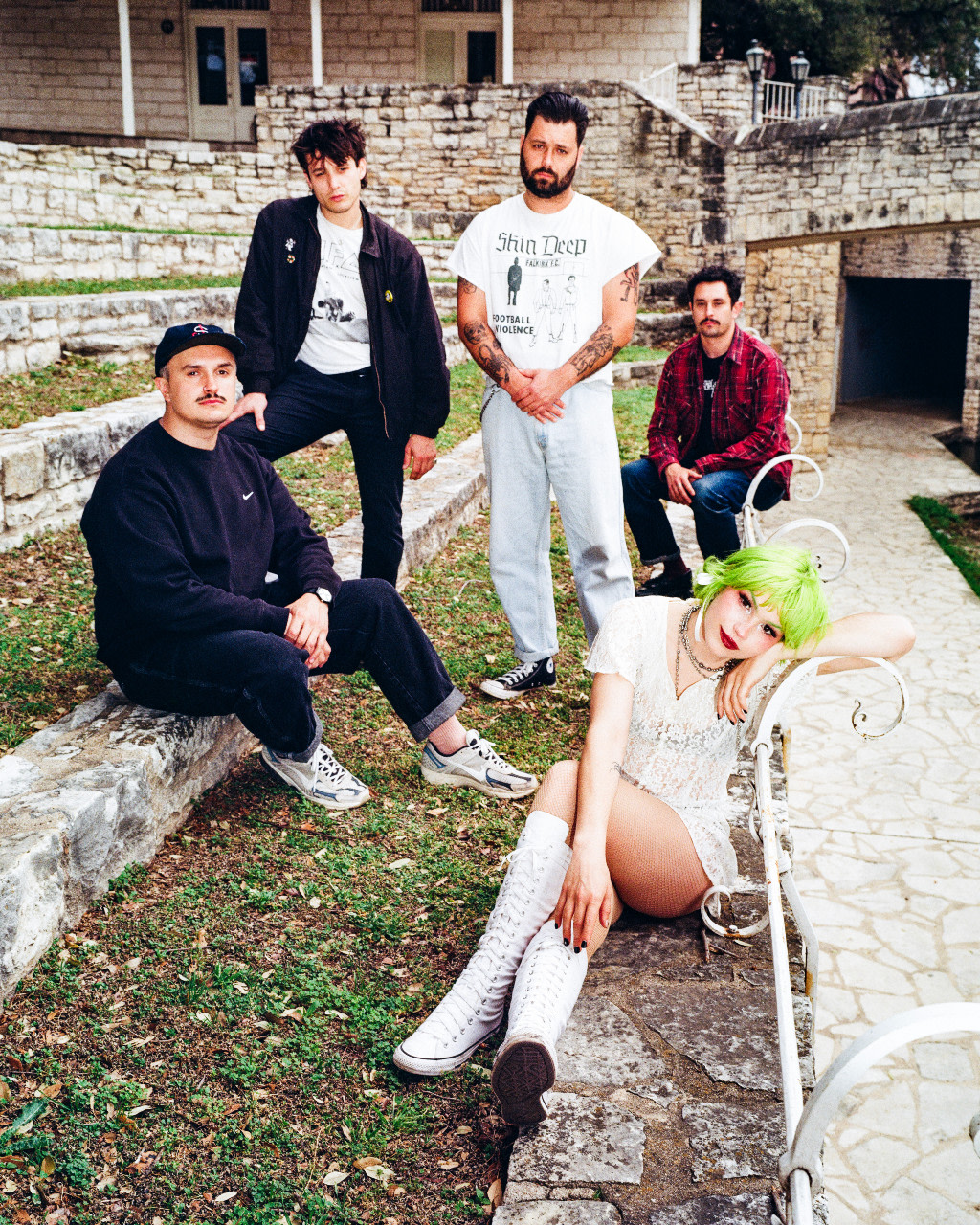 Are We All Angels and redefining hardcore”>
Are We All Angels and redefining hardcore”>
Pooneh Ghana
Do you see this album as a response to those critics, or almost doubling down on what offends them?
Moss: I see this album as a result of grief, major depression, and burnout. Those things rearrange you on a molecular level. Trauma is rewiring our brains every single day. I wrote a lot of the songs about the pain I was experiencing and the disconnect I felt being on tour nonstop and unable to exist in my body and in my brain. When we finally got into the studio after two solid years on the road, everybody unloaded about how hard they had found it. Even though we loved it and it was a dream experience, it also costs you your selfhood and your personal life.
Lupo: I think we all went through different forms of grief. Either losing people or going through tumultuous, home relationships. There was a lot going on and there was no time to deal with it. So it just kind of sat and festered and decayed, and that was really fucking painful.
Moss: I just shut down and disassociated. Looking back, it was really unhealthy. When we were in the studio it quickly became apparent that this was gonna be quite a heavy album in the lyrical sense. I was ready to open that faucet.
The album is dark lyrically but musically it’s moving in an ever more poppy direction. What was it like working with Will Yip on this record?
Greene: Will’s great. He just elevates your work and helps bring out the best version of the song. He’s never been the guy that will say, ‘Your band should sound like this.’ When we were discussing this album within the band, it was never a case of wanting to chase a more mainstream sound.
What was it you were chasing?
Lupo: We wanted to experiment more with more influences. We were able to experiment with more melody instrumentally as well as in Kat’s vocals. It was a case of let’s just have fun and see what comes of it. We don’t want to just write the same hardcore record over and over.
Moss: The cool thing about working with Will is that he and I align really heavily when it comes to our taste in pop and production. We were able to really geek out on vocal production and things like that. We spent a lot of time talking about Nigel Godrich and Billie Eilish. That was really cool.
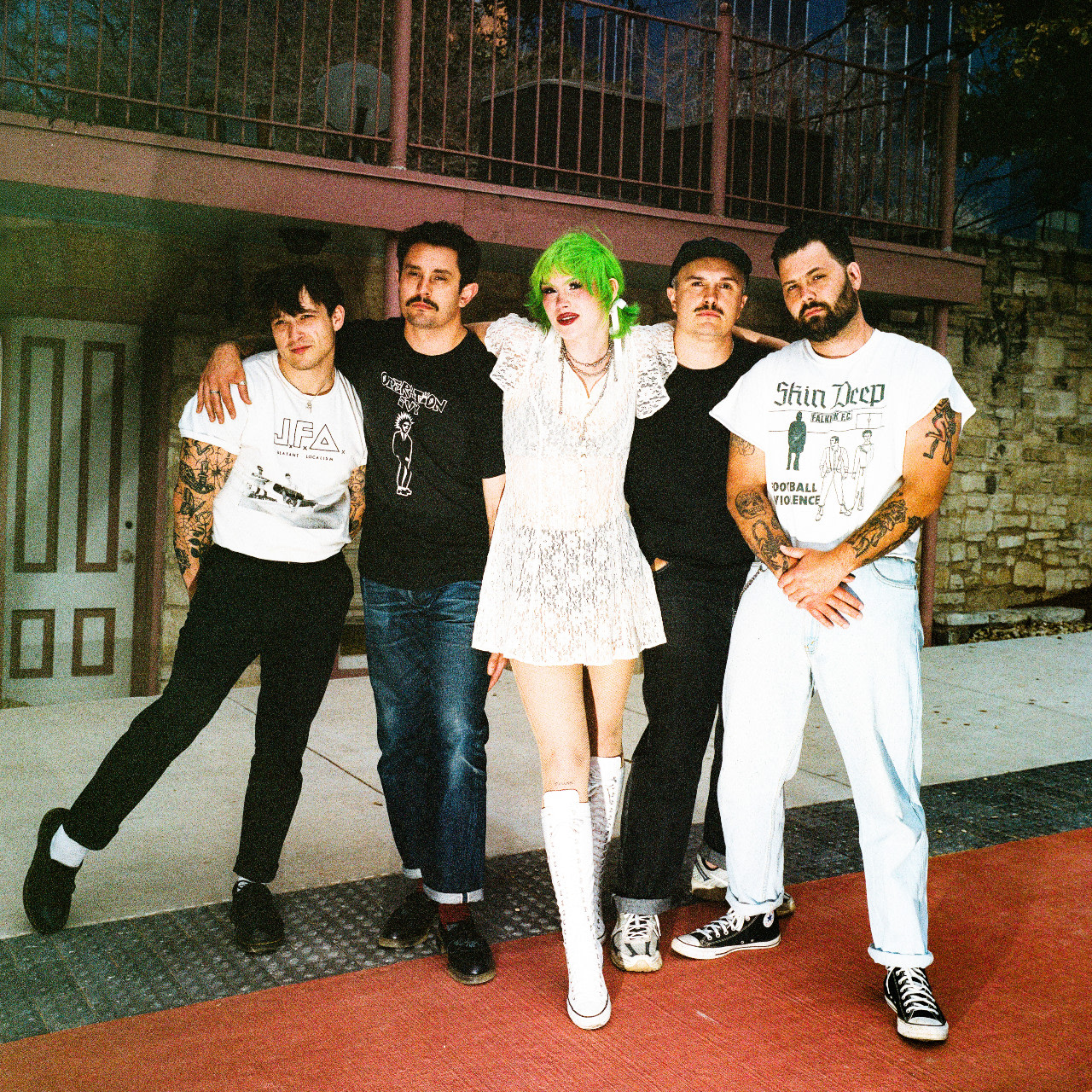 Are We All Angels and redefining hardcore”>
Are We All Angels and redefining hardcore”>
Pooneh Ghana
Scowl clearly view hardcore as more of an ethos than a sound. Does that lead you to ethical dilemmas when it comes to navigating the music industry?
Greene: Absolutely. We do what we want. You can’t dangle the shiny thing in front of us and convince us to do anything.
Have you made decisions that have cost you financially because they go against your ethos as a band?
Moss: Yes. We dropped things that were gonna pay us a lot of money because we didn’t agree with what they were doing. Things that people know about publicly and things that people don’t know about. We dropped out of playing [U.K. festival] Download because of their Barclays sponsorship and the ties to funding the Israeli army. We dropped South by Southwest and Welcome to Rockville Festival because of their ties to the U.S. army and weapons manufacturers. We don’t see the U.S. army as having any place in the music world.
You have clearly been through a lot together as a band. How has making this album changed the dynamic within the group?
Lupo: What has been really cool is to make music and it be such a collaborative thing sonically and then to have Kat feel comfortable enough to talk about all this personal stuff and let a lot of stuff out. The album is so personal that it feels like an extension of us all as people. It has brought us closer together in that sense. It feels like a blood pact. Like we all sliced our hand open and now we’re infused.

